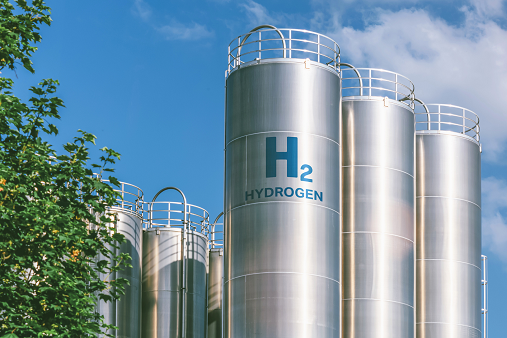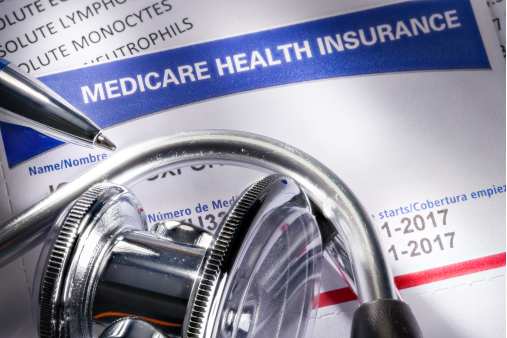The U.S. Supreme Court recently granted cross-petitions for certiorari in Sandoz, Inc. v. Amgen, Inc., Case No. 15-1039, and Amgen, Inc. v. Sandoz, Inc., Case No. 15-1195 (U.S. Jan. 13, 2017). The case will be the first in which the Supreme Court addresses issues arising under the Biologics Price Competition and Innovation Act of 2009 (BPCIA), which established an expedited pathway for the Food and Drug Administration (FDA) to approve “biosimilar” versions of medicines originally approved based on a biologic license application (BLA). It is expected the Supreme Court will decide the case on a fairly expedited schedule.
As summarized in the U.S. solicitor general’s brief, the issues presented in Sandoz’s petition are:
- whether notice of commercial marketing under Subsection (l )(8)(A) is legally effective if it is given before Food and Drug Administration (FDA) approval of the biosimilar application, and, if not,
- whether Subsection (l)(8)(A) is a stand-alone requirement that may be enforced by means of an injunction that delays the marketing of the biosimilar until 180 days after FDA approval.
Billions of dollars could literally turn on the answers to these questions. For example, AbbVie’s Humira® is the No. 1 selling medication in the world with more than $15 billion in annual sales. A six-month delay in marketing of a competitive product equals billions in additional sales.
The question presented in Amgen’s cross-petition was:
Whether Subsection (l)(2)(A) [of the BPCIA] creates a binding disclosure obligation that a court may enforce by injunction, or whether the sponsor’s sole recourse for the applicant’s failure to disclose the information is the right, prescribed elsewhere in the BPCIA, to commence an immediate action for patent infringement.
The Supreme Court has decided to address all of these questions.
The BPCIA, enacted in 2010 as part of the Patient Protection and Affordable Care Act, includes provisions for resolving patent disputes through negotiation or litigation. The provisions are set forth in 42 U.S.C. § 262(l). Because those provisions involve a series of steps between the owner of the original BLA (called the “reference product sponsor” or “RPS”) and the biosimilar applicant, they are often referred to colloquially as the “patent dance.” Among other things, subsection (l)(2)(A) of § 262 provides that the applicant “shall” provide to the RPS a copy of the biosimilar application and information about the manufacturing process for the biosimilar, subject to statutory confidentiality obligations. Subsection (l)(8)(A) states that the applicant “shall provide notice to the reference product sponsor not later than 180 days before the date of the first commercial marketing of the biological product licensed under subsection (k).” The purpose of subsection (l)(8)(A) is to give the RPS time to pursue a preliminary injunction against marketing of the biosimilar.
This case arose in 2014 out of Sandoz’s application for approval of a biosimilar to Amgen’s NEUPOGEN® (filgrastim), a granulocyte colony stimulating factor (G-CSF). The FDA’s acceptance of Sandoz’s application should have cued the music for the patent dance to begin, but according to Amgen’s complaint, Sandoz shunned Amgen and did not provide appropriate notice. More specifically, according to Amgen’s complaint in July 2014 Sandoz wrote Amgen a letter stating that Sandoz “opted not to provide Amgen with Sandoz’s biosimilar application within 20 days of FDA’s notification of acceptance.” Amgen further alleged that, in a subsequent letter, Sandoz wrote that Amgen’s “next step under the BPCIA can only be starting a declaratory judgment action as specified in that statute.”
After the district court dismissed Amgen’s complaint, Amgen appealed to the Federal Circuit. The three judge panel (Judges Alan Lourie, Pauline Newman and Edward Chen) issued three separate opinions. Judges Lourie and Chen ruled for Sandoz that it did not violate the BPCIA by refusing to turn over its biosimilar application and manufacturing information. Judges Lourie and Newman ruled for Amgen that Sandoz’s notice of commercial marketing was ineffective and that an effective notice can only be given after the FDA licenses the biosimilar.
On the first issue of whether subsection (l)(2)(A)’s language that the biosimilar applicant “shall” provide a copy of its application and manufacturing information to the RPS, Judge Lourie wrote:
However, the "shall" provision in paragraph (l)(2)(A) cannot be read in isolation. In other provisions, the BPCIA explicitly contemplates that a subsection (k) applicant might fail to disclose the required information by the statutory deadline. It specifically sets forth the consequence for such failure: the RPS may bring an infringement action under 42 U.S.C. § 262(l)(9)(C) and 35 U.S.C. § 271(e)(2)(C)(ii). Those latter provisions indicate that “shall” in paragraph (l)(2)(A) does not mean "must." And the BPCIA has no other provision that grants a procedural right to compel compliance with the disclosure requirement of paragraph (l)(2)(A).
In other words, although Sandoz’s refusal to provide its application and manufacturing information may have violated the BPCIA, the statute provides that the only remedy for the violation is that the RPS can bring an infringement action.
With respect to the timing of the notice of commercial marketing, Judge Lourie wrote:
We agree with Amgen that, under paragraph (l)(8)(A), a subsection (k) [biosimilar] applicant may only give effective notice of commercial marketing after the FDA has licensed its product. The statutory language compels such an interpretation. It means that notice, to be effective under this statute, must be given only after the product is licensed by the FDA. In subsection (l), only paragraph (l)(8)(A) refers to the product as "the biological product licensed under subsection (k)." In other provisions of subsection (l), the statute refers to the product as "the biological product that is the subject of " the application, even when discussing its commercial marketing. E.g., 42 U.S.C. § 262(l)(3)(B)(ii)(I), (l)(3)(C); id. § 262(l)(1)(D), (l)(2)(A), (l)(3)(A)(i), (l)(3)(B)(i), (l)(7)(B). If Congress intended paragraph (l)(8)(A) to permit effective notice before the product is licensed, it would have used the "subject of " language.
Thus, Judge Lourie decided both of the major issues based on the language of the statute. Biosimilar applicants complain this ruling gives reference product sponsors an additional six months of exclusivity beyond the 10 years of data exclusivity expressly authorized by Congress. Reference product sponsors respond, among other ways, by arguing that the issues are only sufficiently concrete to litigate after the FDA has approved the biosimilar application.
The Supreme Court will now review both rulings and it will do so on a fairly expedited schedule. In the 5½ months left in this term, the parties will have to file opening and reply briefs and participate in oral argument before the Court turns to writing its opinion.
For more information, contact the Barnes & Thornburg attorney with whom you work or a member of the firm’s Intellectual Property Law Department in the following offices: Atlanta (404-846-1693), Chicago (312-357-1313), Columbus (614-628-0096), Dallas (214-258-4200), Delaware (302-300-3434), Elkhart (574-293-0681), Fort Wayne (260-423-9440), Grand Rapids (616-742-3930), Indianapolis (317-236-1313), Los Angeles (310-284-3880), Minneapolis (612-333-2111), South Bend (574-233-1171), Washington, D.C. (202-289-1313).
© 2017 Barnes & Thornburg LLP. All Rights Reserved. This page, and all information on it, is proprietary and the property of Barnes & Thornburg LLP. It may not be reproduced, in any form, without the express written consent of Barnes & Thornburg LLP.
This Barnes & Thornburg LLP publication should not be construed as legal advice or legal opinion on any specific facts or circumstances. The contents are intended for general informational purposes only, and you are urged to consult your own lawyer on any specific legal questions you may have concerning your situation.
Visit us online at www.btlaw.com and follow us on Twitter @BTLawNews.












